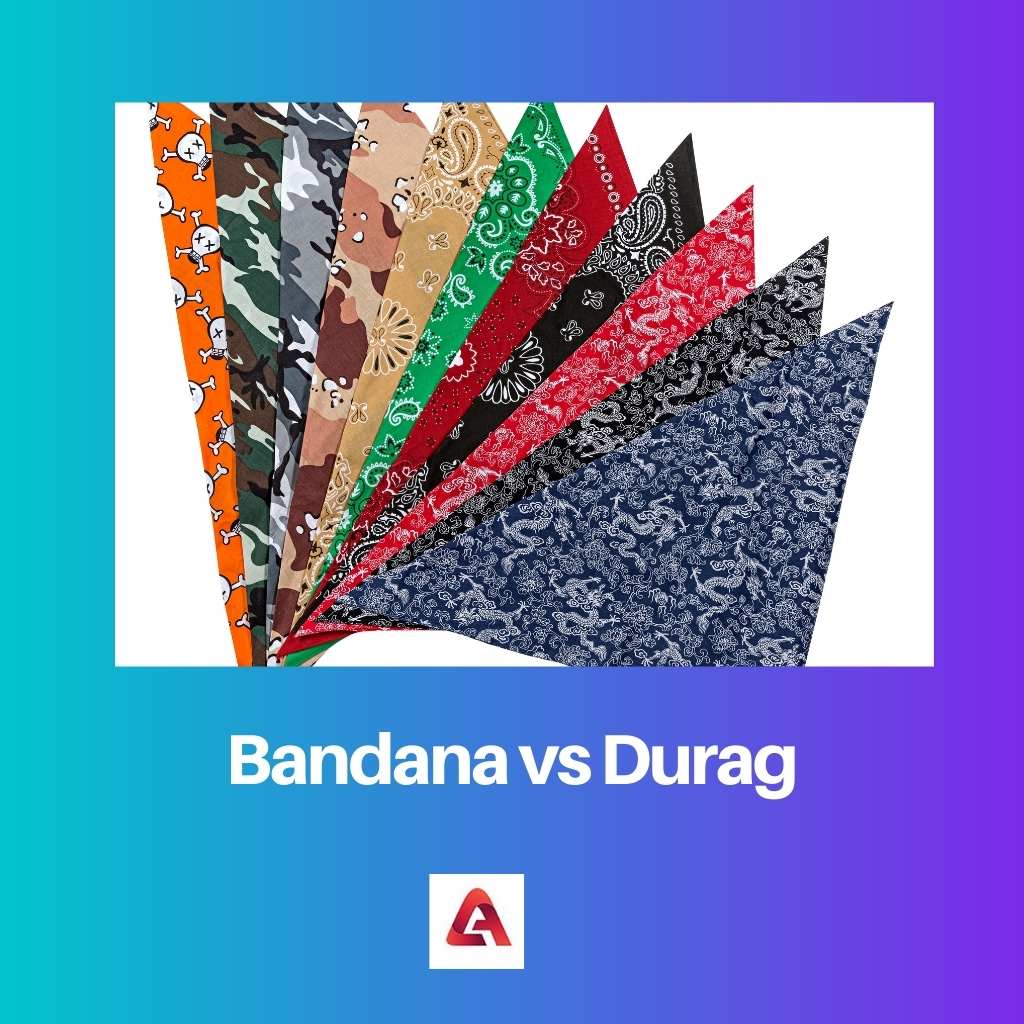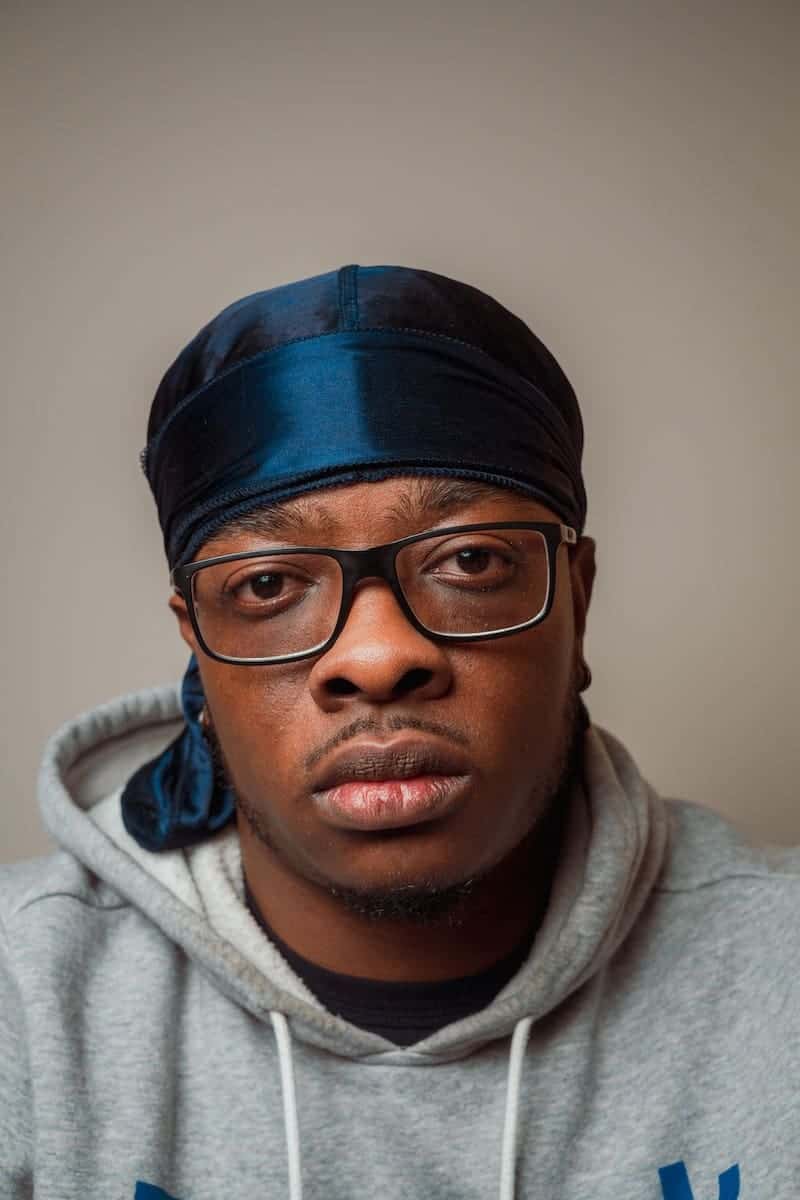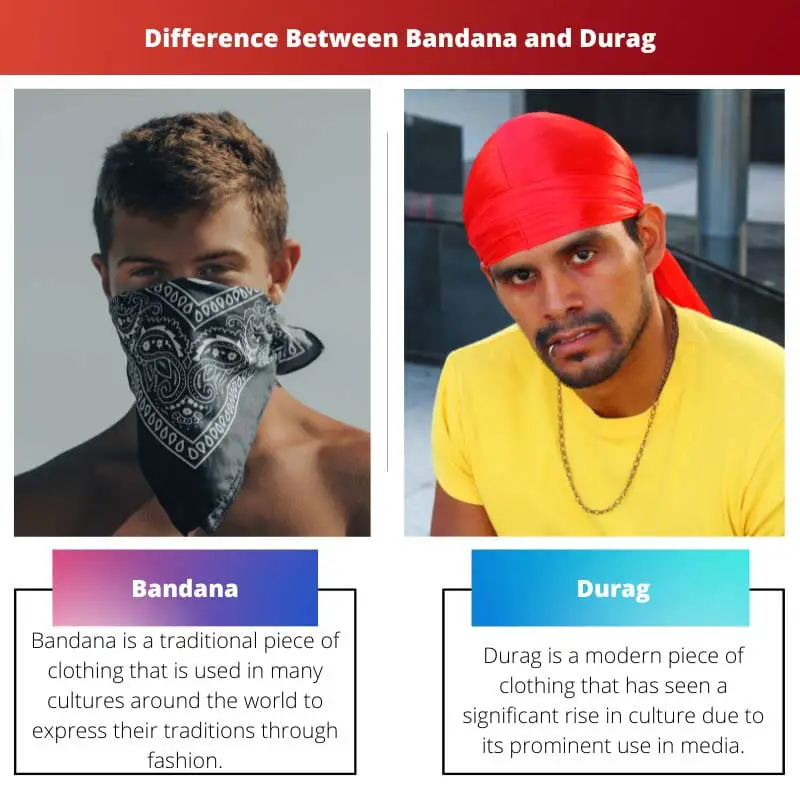Headwear has become really popular in the last couple of decades, most in part due to its prominent appearance in popular and mainstream media culture.
Both Bandanas and Durags are popular headwears among pop artists and the general public alike. Both these headwraps are examples of how pop culture defines our sense of fashion.
Key Takeaways
- Bandanas are square pieces of fabric that can be folded and worn in various ways, including headwear, neckwear, or wristwear.
- Durags are head coverings, made of stretchy fabric, worn to maintain and protect hairstyles or promote wave patterns in hair.
- Bandanas have versatile uses and styles, while durags are specifically designed for hair protection and maintenance.
Bandana vs Durag
The difference between Bandana and Durag is that a Bandana is a more versatile piece of cloth that can be worn around the neck and on the wrist, along with the forehead. On the other hand, a Durag is a piece of cloth that is cut particularly to the shape of the head.

Bandana is a traditional piece of clothing that is used in many cultures around the world to express their traditions through fashion.
It is a piece of cloth that is meant to be worn on the forehead, but it can also be worn around the neck and the wrist.
Durag is a modern piece of clothing that has seen a significant rise in culture due to its prominent use in media. It is a piece of cloth that is cut specifically according to the shape of the head.
Thus it is particularly made to be worn on the head.
Comparison Table
| Parameters of Comparison | Bandana | Durag |
|---|---|---|
| Definition | It is a traditional piece of clothing used to express fashion in different cultures | It is a modern piece of clothing that is prominently seen in mainstream media |
| Wearing | Bandanas can be worn on the forehead, around the neck, as well as on the wrist | Durags are made specifically to be worn on the head |
| Comfort | The comfort of wearing depends on the size of the bandana | Durags are more comfortable than bandanas |
| Fitting | As a bandana is a piece of cloth, it may not stay fit | Durags can be tightened while wearing and hence they stay fit |
| Material | Bandanas are made from cotton | Durags are made from silk, velvet, polyester, and so on |
What is Bandana?
Bandana is a traditional piece of clothing that is used by many traditions across the world to express their culture using fashion.
Many cultures and native tribes still use bandanas as their signature piece of clothing, to express their individuality.
A bandana is a piece of cloth, very similar to a regular handkerchief, but slightly bigger in size. It is made using cotton and is printed with traditional patterns or shapes.
As it is a piece of cloth, it can be worn on any part of the body. It is traditionally worn on the forehead, as a symbol to represent individuality. But bandanas can also be worn around the neck or on the wrist.
Bandanas are made to a specific size and hence they may not be fitted to everyone. This is also true for the comfort of wearing a bandana, as loose bandanas may not be comfortable for the wearer.
Apart from the traditional usage in different cultures, bandanas have become a very popular staple of the fashion sense of the world.
Due to their versatility, they can be worn for almost all kinds of events and scenarios. They can also be worn in any style that the wearer prefers.

What is Durag?
Durag is a very popular headwear and is worn by people all over the world.
Although it originates primarily from the United States, due to its popularity as well as prominent appearance in mainstream media, it has become a staple in modern fashion all over the world.
Durag is made from silk or velvet, hence it is very light and soft to touch.
This is part of the reason why many people prefer durags over bandanas, as due to their light materials, durags are more comfortable than bandanas.
Durag is a piece of cloth specifically cut according to the shape of the head. Hence it has a large section, which is supposed to be worn on the forehead, along with two long sections for tightening the durag from behind the head.
Hence durags are worn over the head, covering the forehead as well as the top and the back portion of the head.
After wearing, a knot is tied using the long sections of the durag on the back of the head to keep the durag securely on the head.
The popularity of Durag is mostly because of its widespread use in mainstream media, as the headwear is commonly seen adorned on the foreheads of pop artists and rappers.

Main Differences Between Bandana and Durag
- The bandana is a traditional piece of clothing used to express fashion in different cultures. The durag is a modern piece of clothing that is prominently seen in mainstream media
- Bandanas can be worn on the forehead, around the neck, as well as on the wrist. Durags are made specifically to be worn on the head
- The comfort of wearing a bandana depends on its size. Durags are more comfortable than bandanas
- As a bandana is a piece of cloth, it may not stay fit. Durags can be tightened while wearing and hence they stay fit
- Bandanas are made from cotton. Durags are made from silk, velvet, polyester, and so on

- https://search.proquest.com/openview/e64b2b2169d33ae2cecb9dc0369a8340/1?pq-origsite=gscholar&cbl=18750
- https://www.researchgate.net/profile/Sharlene-Swartz/publication/265269070_Hawking_youth_culture_from_behind_the_counter/links/571f6dc308aed056fa23485b/Hawking-youth-culture-from-behind-the-counter.pdf
